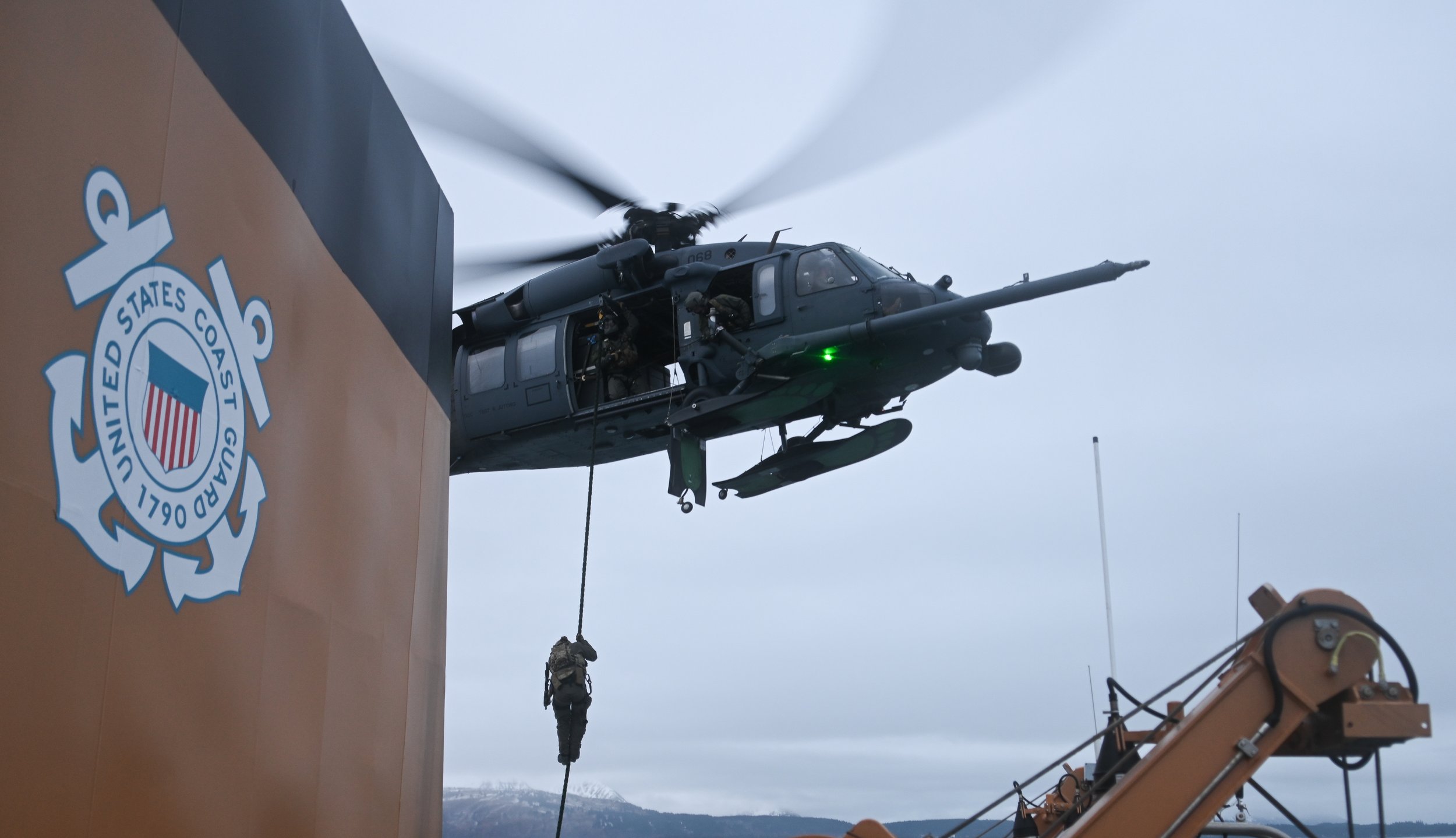Alaska Air National Guard rescues hypothermic mariner near Kodiak
Published June 3, 2024
By David Bedard
176th Wing Public Affairs
JOINT BASE ELMENDORF-RICHARDSON, Alaska --
Alaska Air National Guard rescue personnel of 176th Wing hoisted a hypothermic mariner to safety May 30 about 20 miles southwest of Kodiak Island.
The boat party called in a distress to Coast Guard Sector Western Alaska and US Arctic. The hypothermia victim and three other mariners made refuge in a life raft after their vessel capsized with three of four survivors equipped with dry suits.
When the vessel’s Emergency Position Indicating Radio Beacon was submerged with the sinking vessel, its automatic water switch triggered a 406-megahertz distress signal that was transmitted to the U.S. Coast Guard District 17 Rescue Coordination Center.
The Coast Guard requested helicopter support through the Alaska Rescue Coordination Center at JBER, and the 176th Wing search and rescue duty officer dispatched a 210th Rescue Squadron HH-60G Pave Hawk and a 211th Rescue Squadron HC-130J Combat King II, both with 212th Rescue Squadron Guardian Angel personnel recovery Airmen onboard.
Good Samaritans in fishing vessel M/V Polar Star picked up the four survivors, and a Coast Guard HC-130J Super Hercules established communications with the fishing vessel and relayed updated coordinates to the AKRCC.
The Combat King air-to-air refueled the HH-60 to give it the range to cover the 370-plus miles from JBER to the fishing vessel.
Once on scene, the HH-60 inserted the Guardian Angels by rescue hoist. The GA’s medically assessed the hypothermic patient before hoisting him into the helicopter for transport to Providence Alaska Medical Center in Anchorage.
Alaska Air National Guard Maj. Duane Griffith, AKRCC director of operations, stressed the importance for mariners to have and register an EPIRB.
“The EPIRB automatically activated and provided rescuers precise coordinates for us to begin our search,” Griffith said. “Fortunately, Alaskans often take care of Alaskans in need, and Good Samaritans helped with a good outcome.”

